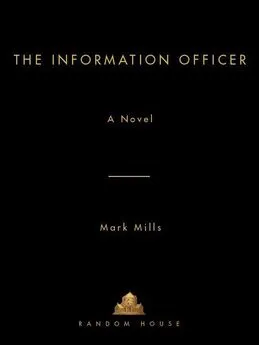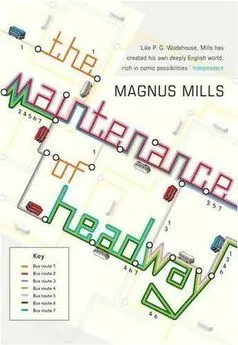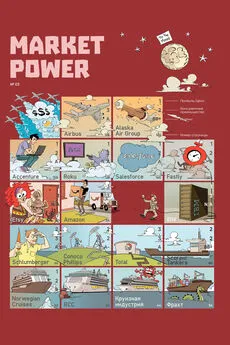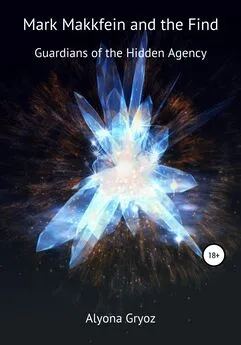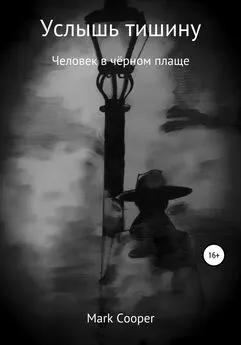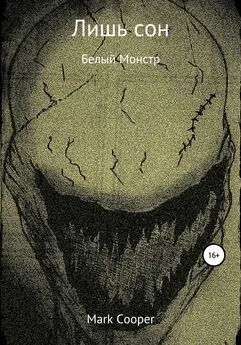Mark Mills - Amagansett
- Название:Amagansett
- Автор:
- Жанр:
- Издательство:неизвестно
- Год:неизвестен
- ISBN:нет данных
- Рейтинг:
- Избранное:Добавить в избранное
-
Отзывы:
-
Ваша оценка:
Mark Mills - Amagansett краткое содержание
Amagansett - читать онлайн бесплатно ознакомительный отрывок
Интервал:
Закладка:
‘I’ve got things to do,’ said the Basque firmly.
Hollis pulled to a halt beside the Presbyterian church and turned the engine off.
‘Why?’ asked Hollis.
‘Why what?’
‘Why kill her?’ The question hanging over the investigation from the very first—the motive.
‘I don’t know.’
‘Sure you do,’ said Hollis. He offered the Basque a cigarette—a delaying tactic—but he declined. ‘Tell me what you’re thinking. I can help.’
‘You’re wrong.’
‘I’m helping already. If I shared what I knew with Milligan, you’d be a suspect. Maybe that’s what they were hoping.’
‘That’s ridiculous.’
‘Is it? You keep quiet about your relationship with Lillian, that’s already pretty suspicious. She’s rich, you’re not, different worlds, she wanted to end the affair, you fought…“Isn’t that how it happened, Mr Labarde? In fact, where were you on the night in question, Mr Labarde?”’ He paused. ‘Any lawyer worth his salt would have a field day with it. It was a neat move of his, going to Milligan. Unless you have evidence. He figures you haven’t, or he wouldn’t have done it. Do you?’
The Basque sat for a moment, his hand on the door lever. ‘Like I said, there’s nothing you can do.’ He unfolded himself from the patrol car.
‘I’m sorry,’ said Hollis, ‘about Lillian.’
The Basque eyed him, judging the sincerity of the words, then he said, ‘She was a good person. She deserved a longer life.’ He shut the car door, but hesitated, stooping and peering through the open window. ‘Lizzie Jencks,’ he said.
Lizzie Jencks. The rag doll in the hedgerow.
‘What about her?’ asked Hollis.
But the Basque was gone.
Twenty-Seven
The man was unremarkable in almost every regard. He was of medium height and build, he was neither handsome nor plain, and his hair was a neutral brown. His clothes, the cheaper end of smart, looked as though they’d been ordered from a Sears catalog. He wore dark gabardine pants and a lightweight hound’s-tooth sports jacket. The geometric design of his hand-painted silk necktie was discreet and not too colorful.
In fact, there was nothing whatsoever memorable about the man. Which was just the way he liked it.
As he climbed down from the train at East Hampton Station, a casual observer might have taken him for a furniture-polish salesman, and assumed that the brown leather case he was carrying held a selection of his wares.
It did indeed contain the tools of his trade, but these consisted of a leather cosh, a three-foot wire garrotte, a Colt 1911, a nonregistered .357 Magnum with a variation 8 3/ 8-inch barrel for extra punch and accuracy, and a hunting knife. He carried his other blade—an ebony-handled stiletto—in an ankle scabbard.
He examined the small station building, flashing white in the afternoon sun. He hadn’t noticed on his last visit, but it was perfectly symmetrical, its pitched roof extending at both sides to provide identical covered seating areas open to the elements. It was, it occurred to him, exactly the sort of station building any kid would be proud to have sitting beside the rails of his toy train track.
People were already queuing for taxis in front of the station. The man strolled past, heading west on Railroad Avenue, then south on Race Lane. The car was parked in front of a laundry. It was a black pre-war sedan, a different one from the last time. He slid his case across on to the passenger seat, climbed in, started the engine and pulled away.
A room had been reserved for him at a guesthouse on Buells Lane. He drove to it, but only out of curiosity. He disliked anyone knowing where he was, and that included his employers. He knew for a fact that this caution had saved his life on at least one occasion.
He stopped at a grocery store on Main Street, bought a few provisions, and, after quizzing the clerk, found himself at the Sea Spray Inn, right on the ocean. It was a large, sprawling establishment with wide sun porches, set just back from the beach. Better still, one of the inn’s small cottages strung out along the dune beyond the main building had come free due to a cancellation. He took it. It offered the privacy to come and go freely at all hours.
He unpacked his clothes and slid the empty suitcase beneath the bed. It would take an expert eye to detect the false bottom with its small cache of weaponry. He poured himself a glass of milk, checked that all the doors and windows were locked, then he tore open the brown envelope he’d pulled from beneath the sedan’s passenger seat.
He smoked two cigarettes while he read the contents, committing the information to memory. There was no fireplace in the cottage, or he would have burned the papers there and then. As it was, he shredded them and flushed the mulch down the toilet.
He changed into some shorts and a sleeveless shirt and strolled on to the beach, pleased to note that there were others as white and pasty as himself spread out along the shore. He headed east, the sun at his back, sticking to the packed sand at the water’s edge where children frolicked, leaping the waves and body-surfing.
By his calculation it wasn’t even a mile to the spot where he had put the girl’s body in the sea, and he was curious to see what the place looked like in daylight.
Twenty-Eight
Hollis had little choice but to wait for the change of shift at eight o’clock. Past case files were located in a cabinet right beside Bob Hartwell’s desk in the squad room and there was no way he could justify rifling through them, certainly not for records of an incident predating his arrival in East Hampton. He was skating on thin ice—Milligan had almost caught him out twice—and while he trusted Hartwell, now was not the time to be taking risks.
At a quarter of eight he suggested that Hartwell head home a bit early.
‘You sure, Tom?’
‘Say hi to Lisa and the kids.’
As soon as Hartwell was gone, Hollis moved fast. Stringer had a tendency to show up early for work. Locating the files was easy, figuring how to get them to his car unnoticed was another matter. It would require two runs. The first went without a hitch. Hollis had dumped the second batch of files on Hartwell’s desk, and was arranging the cabinet to conceal the gaps when he heard footsteps on the stairs.
He intercepted Stringer at the door of the squad room.
‘Do me a favor, will you, and get me a pack of cigarettes?’
‘Luckys, right?’
‘You don’t miss much, do you?’
Stringer beamed.
‘That’s good,’ said Hollis. But not so good that Stringer didn’t ask himself why in the hell Hollis couldn’t pick up his own cigarettes seeing as he was going off work.
He opted for the kitchen table, sweeping the clutter on to the floor. He spread out the files around a notepad, set up an ashtray to his right, along with a bowl of ice, a glass and a bottle of Gordon’s. Then he launched in.
He had arrived in East Hampton almost a month after the incident, just as Milligan’s investigation was petering out. Eager to contribute, Hollis had suggested that he call in a favor from an acquaintance who worked in the Motor Vehicle Homicide Squad back in the city, maybe get the guy to come up for a week.
It was his first mistake. The first of many.
Milligan shot the proposal down. Clearly, the last thing he wanted was some jumped-up city fellow telling him how things should be done—or, more to the point, exposing the gross procedural errors he’d already committed. When Hollis then gingerly brought up the possibility of sending a sample of the black paint chips recovered at the scene to the Broome Street crime lab for analysis under their spectroscope, Milligan actually laughed. He dismissed the new technology—which he’d evidently never heard of—as a passing fad. Hollis had quietly sent the sample anyway, not that there’d ever been a suspect vehicle to check against the lab’s spectrogram.
The case, dead for over a year, was now very much alive again, and this time Hollis was in charge, no Milligan to keep him at bay. He quickly reacquainted himself with the sequence of events, scanning the reports, the Chief’s clipped and unfeeling prose. The body was first sighted a little after seven in the morning by a potato farmer from Wainscott heading east on Town Lane for a spot of Sunday fishing off Barnes Landing.
She lay in the hedgerow on the north side of the road, fifty yards west of the junction with Indian Wells Highway. Hollis had never actually visited the spot, but he could picture it. Almost three miles in length, Town Lane ran parallel to Montauk Highway, about half a mile to the north of it, cutting through open countryside, farming land studded with pastures. It was a straight road, a fast road; he had often found himself unwittingly pushing the throttle to the floor when driving it.
By the time Chief Milligan had arrived on the scene, Lizzie Jencks’ parents, whose homestead lay a little to the west on Town Lane, were already present amongst the gathered. The scene was photographed, the body then removed by the Medical Examiner.
Examination of the road surface suggested that the vehicle had been traveling west on Town Lane at considerable speed, the autopsy subsequently setting the time of death at somewhere between midnight and three o’clock in the morning. The parents were unable to explain why their daughter had been out walking in the dead of night, and no one else had come forward with an explanation for her nocturnal ramble. It was this that had stuck in Hollis’ craw at the time, and it was still there.
He poured some more gin into the glass, then began to peruse the statements, looking for a name: Manfred Wallace.
He quickly ascertained that Manfred Wallace had never been questioned over the hit-and-run. Justin Penrose, on the other hand, had been, though not as a possible suspect. It was in his statement that Manfred Wallace’s name was buried away, along with that of his sister, Lillian. The document was Bob Hartwell’s follow-up report on the movements of all those who’d attended a dinner dance at the Devon Yacht Club on the night in question. According to the club’s secretary, Manfred and Lillian had left the event early in the evening to join Mr Penrose at his house. The departure of two members well before the time of the incident would have marked the end of that particular investigative trail for most police officers; but Hartwell had made the effort to visit Penrose at his house and ask him when exactly the Wallaces had moved on from his place. Hollis silently praised him for his thoroughness, while struggling with the questions thrown up by the report.
The Devon Yacht Club connection with the hit-and-run was tenuous at best. Town Lane was far from being the most direct route back to the summer colony in East Hampton from the club. More importantly, if Manfred and Lillian Wallace were already back in East Hampton just after nine o’clock, what the hell were they doing heading west on Town Lane some three or four hours later?
The answer was staring him in the face, it just took him a while, and a couple of slugs of gin, to see it for what it was.
Penrose’s given address was Water’s Edge—a house name displaying as little imagination as that of the Wallaces’ place: Oceanview. Or so he’d assumed. Maybe it wasn’t a house after all.
He went to the hallway and picked up the phone.
‘Operator.’
‘Olive, it’s Tom Hollis.’
Olive Hibbel worked the board most evenings over at the telephone exchange on Main Street.
‘I’m looking for a local number,’ said Hollis. ‘Penrose, maybe Justin, maybe not.’
Читать дальшеИнтервал:
Закладка:

